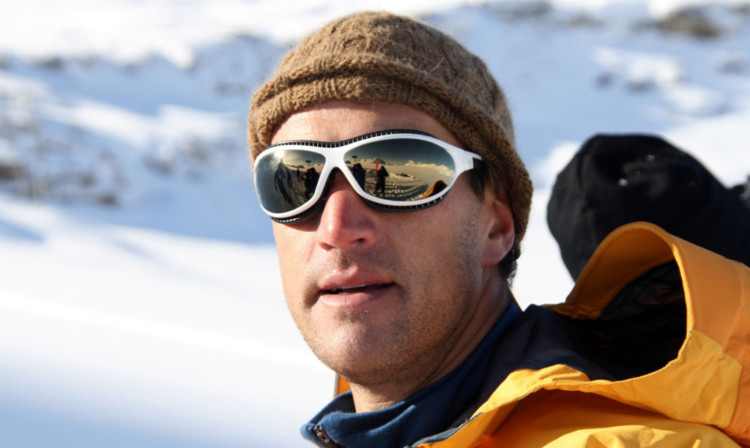
Ben Fogle has revealed how he should have been on Mount Everest when a deadly avalanche struck.
Adventurer Fogle was supposed to be on the peak filming a documentary with American channel NBC, but a schedule clash with another series he is presenting meant he was in Dorset instead.
Thirteen Sherpa guides have so far been confirmed dead after Friday’s avalanche, in what experts have dubbed “the worst disaster” to hit the world’s highest peak.
Yesterday, rescuers were digging through piles of snow and ice for four Sherpa guides still buried on the slopes.
The avalanche struck around 06:45 local time on Friday in an area known as “popcorn field”, just above Everest base camp at 19,000ft.
Fogle’s TV crew, including Scottish director Ed Wardle, were at the base of Mount Everest when the disaster hit.
They had intended to go up the mountain with sherpas the previous night. But they chose to delay for 24 hours and were safe at the base camp when the avalanche hit.
The team were preparing for a Discovery special “Everest Live Jump” that was set to air in May, presented by Fogle.
A group of Sherpas who were working with NBC on the show all survived the catastrophe.
Yesterday former Castaway and Countryfile star Fogle, who is a special correspondent for NBC News, tweeted: “Terrible irony that my new show about avalanches is on Sky tonight. I was supposed to be with the NBC Everest team. My thoughts with all.”
Instead of being with the NBC crew, Fogle was in Dorset where he was filming a new ITV series called Harbour Lives yesterday.
It is believed a filming schedule clash between the two programmes kept him away from Mount Everest.
Meanwhile, Scots TV director, Ed Wardle has spoken about the horrific scenes on the mountain.
The 43-year-old who was expected to scale the peak as part of the show has admitted the tragedy has left him questioning the venture altogether.
He said: “The atmosphere here at base camp is one of shock and now of grieving. I believe it’s the worst disaster in Everest history, if not all mountaineering.
“For something like this to happen makes the whole thing seem pointless to me. And I believe that will be the same for many people here.
“One of the most horrific sights I ever saw on Everest was seeing the bodies being airlifted on longlines below the helicopters. They’ve been brought back to base camps and will eventually be taken down to their families.
“The mountain is closed for now. Nobody will be climbing. People come here to take a risk. We understand those risks. But when something like this happens, we all have to question what we’re doing here.”
The accident comes during the peak climbing months of April and May as hundreds of climbers converged at base camp in the hope of scaling the summit.
It was the first major avalanche of this year’s climbing season on Everest, which has been scaled by more than 3,000 climbers.
Ed added: “I think that many of the expeditions here will pack up and go home. For this number of people to die at the very beginning of the season is completely unacceptable.”

Enjoy the convenience of having The Sunday Post delivered as a digital ePaper straight to your smartphone, tablet or computer.
Subscribe for only £5.49 a month and enjoy all the benefits of the printed paper as a digital replica.
Subscribe